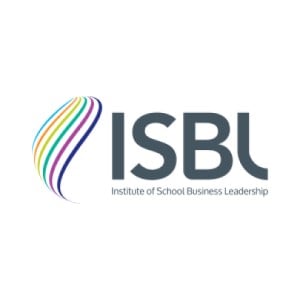Every organisation will, on occasion, fall foul of failing to pull in the same direction. But what if that becomes the case for the whole system?
Issues caused by inadequate leadership can have significant ramifications for schools and trusts across the education sector. The fundamental question is, is a lack of joined-up leadership getting in the way of running our schools effectively, and, if so, what can we do to improve?
That is the question asked by ISBL Chief Executive Stephen Morales in his latest research report exploring the barriers to joined-up leadership in education.
In his report, Stephen lays out over 18 months of investigation into the potential barriers to joined-up leadership in our education system. Motivated by his own frontline experience as an education leader with a non-teaching background, his research draws on existing literature to unearth the intrinsic nature of relationships between key actors in our schools, from frontline practitioners and sector leaders to think tanks and former senior civil servants.
Introducing his research, Stephen said: "As a sector leader, I have been observing and consulting on education reforms since 2013. I have seen little substantial change in attitudes and interactions across the leadership triangle.
"In fact, evidence in this paper suggests that recent reforms have led not only to tensions across the pillars of leadership but also within each of these groups, as headteachers concede power to chief executives, business managers report into chief financial officers/chief operating officers, and local governing bodies have increasingly less influence as trust boards assume full responsibility for strategic planning as the ultimately accountable body.
"The sector continues to pay lip service to joined-up leadership, but vested interests, self-preservation and anxieties related to a loss of power or influence appear to be supporting entrenched behaviours. Perhaps we need to consider how we might reassure education leaders that it is perfectly acceptable not to have all the answers for every area of a school’s operations and that embracing a diverse professional workforce with a range of skills and backgrounds is indeed a very positive thing."
Crucially, through this illuminative deep dive, Stephen has established a series of important findings and makes evidence-based recommendations aimed at helping accelerate operational school improvement and governance.
You can hear more about the research from Stephen Morales in this short video, where he discusses what motivated him to look into the challenges in school leadership and why it is important that these challenges are addressed.
Click here to download a copy of ‘Barriers to joined-up leadership in the English education system’.
About the author
Stephen showed an early interest in operations management when he enrolled on the Leisure Amenities Management Diploma at the Colchester Institute in 1986.
After completing an economics degree at Fresno City College in California, Stephen then undertook a number of management positions in the private and public sectors, including facilities management for Southend Borough Council and leading continuous improvement, quality assurance and change management for Swiss American Bank, Credit Suisse.
In 2004, Stephen took his first position in education when he was appointed as Finance Director of a chain of British International Schools. On appointment, he also became a member of the then National Bursars Association (now ISBL) and enrolled on the NBA Licentiate programme and Certificate in Education with Leicester University. He then returned to the UK in 2007 to take on the role of Business Director at Watford Grammar School for Girls, working alongside Dame Helen Hyde. Stephen guided Watford Girls through the academy conversion process as one of a handful of pioneer schools.
In 2009, Stephen was voted School Business Manager of the year and was subsequently invited to participate in numerous Department for Education policy discussions and consultations. He remains the longest-standing member of the School and Academy Funding Group and has previously chaired the Academy Trust Handbook working group, as well as being a standing member of the Department for Education's Finance and Assurance Board.
Stephen is now CEO of the Institute of School Business Leadership. He has presided over professional standards, led on the deployment of School Resource Management Advisers, collaborated on domestic and international research, and currently chairs the equality, diversity and inclusion sector bodies' focus group.
Stephen’s core interest is in the chemistry and culture of leadership interactions in education, in particular the relationship between governance, pedagogy and business. Stephen pioneered the concept of the leadership triangle, and this latest research explores barriers to joined-up leadership in our education system, drawing on many years of executive leadership experience and boardroom insights.

ISBL Team
ISBL is uniquely dedicated to supporting every version of the school business profession operating across our school system


